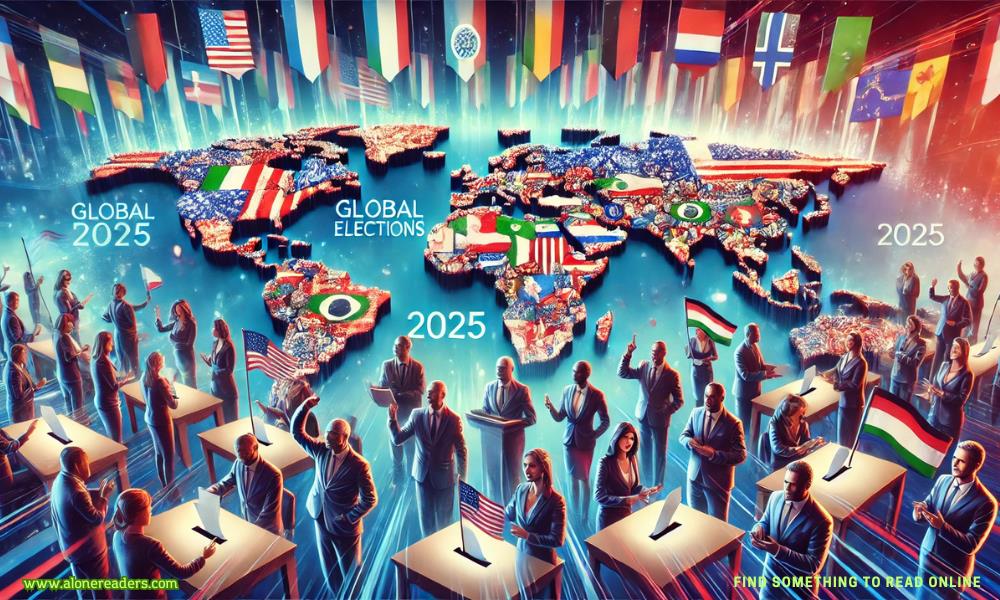Page 95 of What I'm Looking For
Even Frankie’s been neglected since Will started sleeping over so much. He spends the night on the couch these days.
I just need some sort of warm body next to me. “Frankie!”
Just when I’m about to give up on every male in my life, I hear my kitty’s chirp and his heavy body lands on the bed. I stroke the side of his face, just the way he likes, until he curls up next to me.
I keep my sobs small so they won’t disturb him.
Chapter25
BEEP. Thursday, 8:30 a.m.
Kate, it’s Steve. I’m out of the office on some calls but I wanted to tell you—that old professor of mine who does research on microfinance? She’s actually speaking at a conference this week at Tufts. I left the brochure on your desk and a message at her hotel and said you might say hello. Let me know how it goes.
KATE
By the end of Dr. Ortega’s lecture, I have a much better grasp of how microfinance works. It’s basically giving very small loans to individuals who would never be able to borrow from a traditional bank. What would be a drop in the bucket to a conventional business owner makes a huge difference in these borrowers’ lives. Kind of like that saying “when you give a man a fish, you feed him for a day, but when you teach a man to fish”—and, I guess, give him a rod and reel—“you feed him for a lifetime.” In the case of Ortega’s non-profit, when they give a woman money to buy a loom or a cow, they feed her and her family for a lifetime. Most of these loans are going to women in third-world countries, but I’m thinking that micro-loans are needed here in the U.S. as well.
With that in mind, I take one Will-breath after another, assume my lioness body and remind myself that I have unique gifts to offer as I move through the standing-room-only crowd toward the dais and my goal. When it’s my turn to speak to the professor, I tell her that I’m a colleague of Steve’s and that he let me know about her lecture, then I take one more deep breath and ask her if she might have time to meet with me while she’s in town so that I could ask her advice on career options.
I’m getting better at meeting strangers, but Dr. Ortega is intimidatingly self-possessed and apparently a huge deal in her field. She has a PhD and an MBA. She now teaches at the Wharton School at Penn as well as leading the non-profit. Still, her smile is genuine when I mention Steve.
“Of course. I was hoping you’d say hello. Steven had very nice things to say about you.” She looks over my shoulder at the thinning crowd. “There is a cocktail event I’m supposed to go to.” Eyes back on me, she whispers, “But I’d be happy to skip that if you want to have a drink in the lounge now.”
I do my best to hide my surprise. “That would be perfect, thank you.”
Moments later, we’re seated at a cozy spot and a waiter has taken our orders.
“I really appreciate you taking the time to meet with me, Dr. Ortega. Your lecture was so thought-provoking. Inspiring, really.”
“Please, call me Irma.” She sits back and crosses her legs. “I’m always happy to encourage young women making their way in finance. There aren’t very many of us, especially in your line of work.” The waiter arrives with our drinks, and she lifts her glass in a salute.
Mirroring her, I take a careful sip of my wine before setting it down. I need all my brain cells to focus. “Well, I have to confess, I’m thinking of getting out of investment banking.”
She cocks her head. “Really? Why?”
“This summer, I started visiting manufacturing plants as part of my research. Being there in person was completely different than talking to people on the phone. It opened my eyes to the human costs of what I do.”
Passion that’s been building for months around these issues, combined with Irma’s clear interest, spurs me on. “When I’m selling a company to shareholders, I’m rewarding that company for sending jobs overseas or replacing local workers with robots. I saw firsthand the poverty that creates. I don’t think I want to be a part of that system anymore.”
Getting these thoughts out of my head is such a relief I don’t care if it means my motormouth has full rein. “Then I happened to learn about microfinance and started reading up on it. I’m so glad I found out about this conference. When I heard your lecture—I mean, I just think I’d be a lot happier putting my energy into helping peoplemakejobs rather than taking them away.”
Irma looks off to the right, probably trying to digest my spew of information. “What’s your background? Do you have an MBA?”
I swallow a gulp of wine. “No.”
She winces slightly, making the fine lines around her eyes visible for the first time.
“My plan was to get on-the-job experience before going to grad school. Since then I’ve been learning so much, another degree hasn’t seemed necessary.”
“Tell me what you’ve been doing.” She sets down her glass and leans forward. I give her a brief rundown of my résumé. She asks a few questions, but mostly lets me talk. Once I’ve wound down, Irma presses her lips together and picks up her glass, swirling the liquid.
Just as her silence starts to feel awkward, she sets the glass back down. “This may be fortuitous. Women to Women is based in Philly, but we’ve been planning to open another office here in Boston.” She sits back again, gesturing in the air around her. “We’d planned to hire someone local with experience in the nonprofit sector. There are a lot of alumni groups and potential donors here, as well as academics wanting to be involved peripherally. However, there is another piece that we’re planning to add, which might line up better with your background. SRIs.”
“SRIs?”
“Socially responsible investment dates back to the Quakers in Philadelphia, but it’s happening more and more on an institutional level now. With SRIs, you include corporations’ social and environmental practices as well as all the other factors you’d typically take into consideration when deciding how to invest.”
I have to press my lips together to keep my jaw from hanging open. How is it possible that I’ve never heard of this?
- The Sheikh and the Single Mom by Holly Rayner
- Extra Tight by A.R. Taboo
- Dominance by Lisa Cullen
- Buried by T.O. Smith
- Savage Claim by Bella Ash
- Savage Proposal by Bella Ash
- Inappropriately Matched by Chloe Kent
- Wilde Secrets by Melanie Hepburn
- The Devil's Torment by Tracie Delaney
- Ms. Mosley by Talena Tillman
- Stricken by N.N. Britt
- Unspoken by N.N. Britt
- Isaac by N.N. Britt
- Past Lovers by Kelex
- Bitten by Kelex
- Best Friends by Kelex







